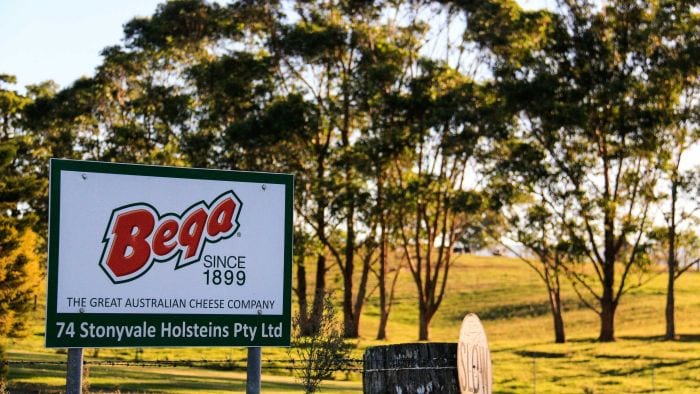Industry Partner: Bega
Project Background:
The Bega farm lagoon system had its last major upgrade in 1996 as part of a bigger site upgrade (including dryer and WWTP at the factory). The system currently has a Primary lagoon with 3X55kW aerators in it as well as a Secondary lagoon with 2X11kW aerators. Other components of the lagoon system are 3 storage lagoons with a total winter storage capacity of 240MEG. This volume is irrigated to land over the summer period.
On one occasion since the upgrade Bega has had the secondary storage lagoon de-sludged using a dredger (this occurred in 2007). There have been no other remediation works carried out on the lagoon system other than aerator maintenance since then.
The secondary lagoon is currently carrying a large volume of sludge in it from the factory waste streams. This has been verified by sludge mapping conducted on the lagoon approx. 4 years ago.
During the last 5 years site has conducted some testing on the lagoon with the sludge loading in it. This testing includes but is not limited to:
- Sludge mapping of the entire lagoon (this was done 4 years ago.)
- Water sampling monthly testing: BOD, Suspended Solids, Total Nitrogen, Phosphorus, Total Kjeldahl Nitrogen, pH
Project aim: To conduct research into the current functionality of the system and then workshop potential improvements to ensure that we are treating our wastewater to the best of our ability using the best technology currently available to do so.
(As stated earlier the system Bega currently relies on was installed in 1996 and has worked well, however due to the changing environment and the cost of electricity amongst other things Bega believes that this is a good time to conduct a reality check on the viability of the current treatment practise).
Expected outcomes: The success of the project will be measured on 2 fronts:
1) At the completion of the project Bega will receive comprehensive evidence with one or more researched options providing a breakdown of the quality/financial and environmental benefits.
Bega will receive current state data (energy costs ect) as a result of the RMIT personnel conducting testing to ensure improvements made.
2) RMIT will get to work on a real life industry issue and create a management plan to improve the viability of our wastewater treatment system.
Students:
- 04 environmental engineering/science students

